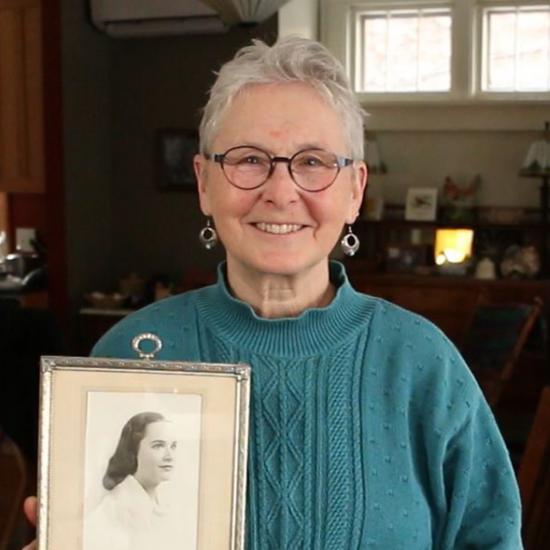Caregiver Voices: ‘This is Work That I’m Choosing to Do’
From the time she was a child, Jeanne LaBore expected and hoped to take care of her mother someday. Five years ago, Jeanne became that caregiver. She noticed that her mother, now 89, was experiencing gaps in memory and repeating herself. Jeanne wondered if her mother needed assistance with tasks such as managing finances, taking medications, and whether her mother should be driving.
But Jeanne’s mother, who values her independence and lives on her own, struggled to accept help and the eventual diagnosis of mild cognitive impairment. “I have always thought of myself as a generally kind and patient person,” Jeanne says. “It really challenged my patience.”
Caregiver Support Groups Changed Jeanne’s Perspective
Jeanne researched online to find resources, including Wilder’s support groups and educational resources for caregivers. Today, Jeanne regularly attends three groups at the Wilder Community Center for Aging: A general support group for caregivers, a discussion group for people who are caring for someone with memory loss, and a group for adult children who are caregiving for their parents.
Through the groups, research and her own experience, Jeanne changed her perspective on how to help her mother. Early in her caregiving journey, Jeanne felt panicked when her mother refused to let Jeanne assist with tasks or refused to sign documents. Trying to change her mother’s mind was unsuccessful. “All that did was bang me up against this brick wall and it wasn’t good for me and it wasn’t good for Mom,” Jeanne says.
Over time, Jeanne learned that few things are as urgent as they seem. If her mother is unwilling to sort through her books in preparation to downsize her home today, she may be more willing another day. If Jeanne’s mother refuses to sign a document now, she may be agreeable in a few minutes.
Jeanne says the connections she made in Wilder’s caregiving support groups were particularly helpful. “The opportunity to visit with other caregivers, especially those who are caring for someone with Alzheimer’s or dementia in some form, just opened a whole new world to me,” Jeanne says. “It changed my perspective on what I can do and … where I have to let go. It helped me to recognize that patience in all things is really the solution.”
Jeanne’s not alone in finding benefits from Caregiver Services. In an evaluation completed by Wilder Research in 2017, 80 percent of participants surveyed said they are better able to meet the needs of the person they are caring for as a result of connecting with Caregiver Services. One person commented, “I’ve learned that you have to be patient and meet the person where they are at. It takes a lot of strength to get that done – more than you think you have, but somehow you find it.”
Despite Challenges, Jeanne Feels Fortunate to Provide Care for Her Mother
Jeanne continues to help her mother with medications, medical care, banking and finances, and is figuring out how to help her mother downsize her home and move into senior living. The tasks take up time that Jeanne could use to enjoy her mother’s company, but she feels lucky over all.
“I feel so fortunate that I am able to take care of my mother, who I absolutely adore and love and enjoy spending time with,” she says. “It is a burden in some ways, but it’s not a burden on balance. This is work that I I’m choosing to do, that I have the good fortune to be able to do.”
